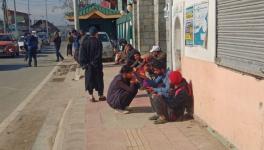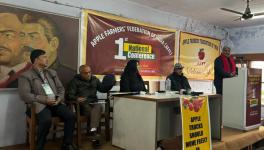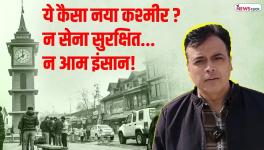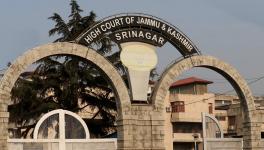Declared Innocent After 23 Years in Prison: Justice Delivered?
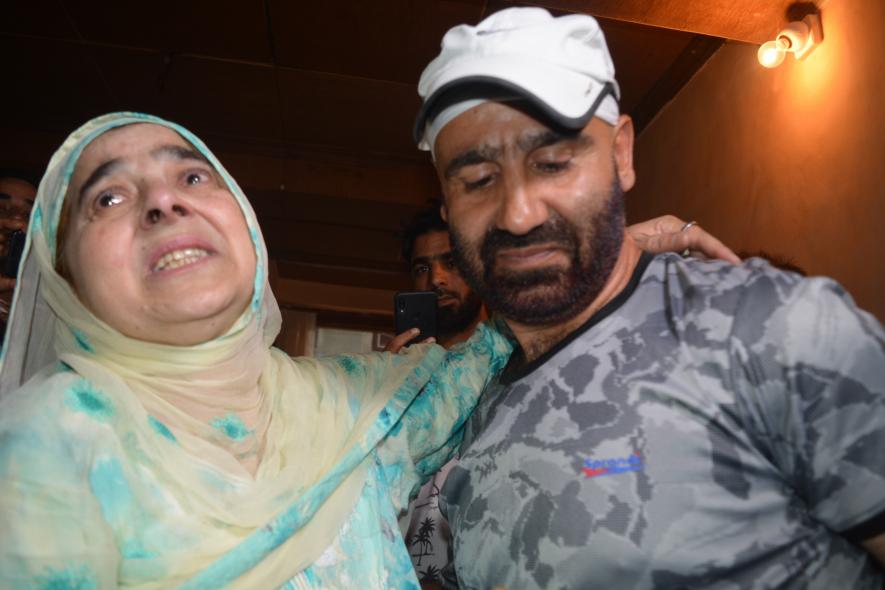
Lateef And His Mother Noor Jahan At His place after 24 years. Photo Courtesy: Zubair Sofi
After spending more than 23 years in prison, four residents of Jammu and Kashmir (J&K) were released on July 23 after they were acquitted by the Rajasthan High Court. All four had been accused in a bomb blast case – following a blast in Lajpat Nagar, Delhi on May 21, 1996.
“Keeping innocents lodged in jail for almost 24 years is probably the biggest cause of shame for our judiciary, administration and our society. Ruining lives of innocents is a deep scar on our democracy and [an attack on] secularism,” says Kamini Jaiswal, a lawyer who fought the case on behalf of those acquitted.
During their 23-year-long incarceration, the three detainees were released not once on bail or parole, according to a report by Greater Kashmir. Some of them even lost their parents, but they were unable to perform their last rites. Stepping out into the world after over two decades will be a serious challenge for them.
All three men are from Srinagar and prior to their arrest, they had been involved in the handicraft business, which used to be the backbone of Kashmir’s economy once.
On July 25, 1996, Mirza Nissar Hussain, then a 16-year-old boy, was in Kathmandu involved in business of Kaleen (Kashmiri carpet) with a few other Kashmiris.
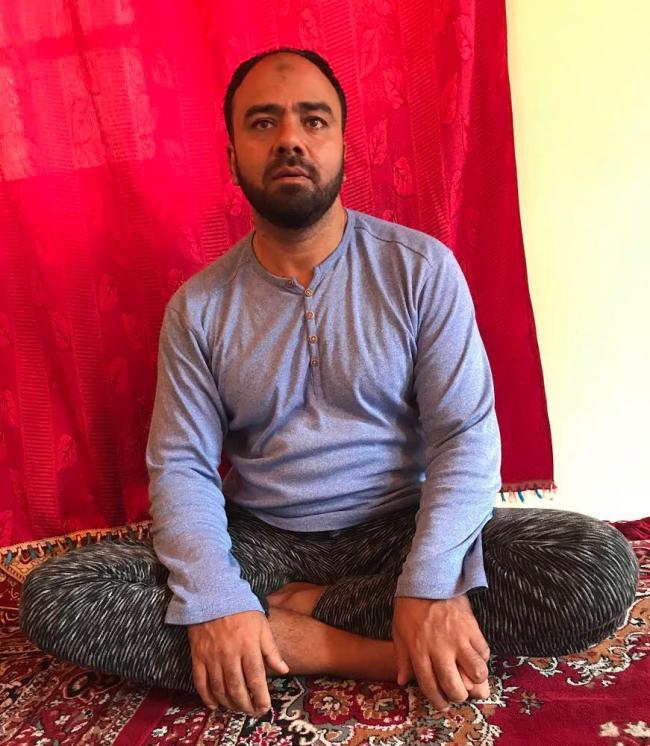
Nissar Hussain At His Home. Photo Courtesy: Zubair Sofi
He recollects that he had gone for Asr (evening prayers) and while returning home, he was stopped by a few of cops, who were dressed as civilians. They dragged him into an armed vehicle.
“They didn’t say anything. Whenever I tried to ask what the reason was, they slapped and kicked me,” recalls Nissar.
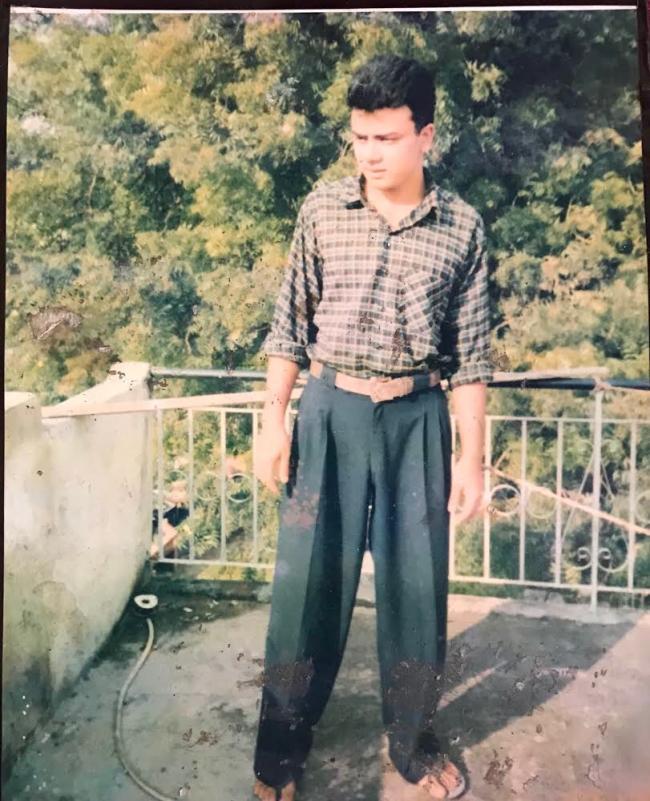
Nissar Before Detention. Picture Provided by Nissar.
Another Kashmiri handicraft businessman, Lateef Ahmad Waja, then 21 years old, was at his home in the same locality, and was doing some calculations, when he could see from his window a few people heading towards his house.
“I didn’t realise that they were cops. They were dressed in casuals. I thought they are customers, but as soon as they entered my home, they pointed a gun at me and asked me to follow them,” says Lateef. He too was pushed into a vehicle.
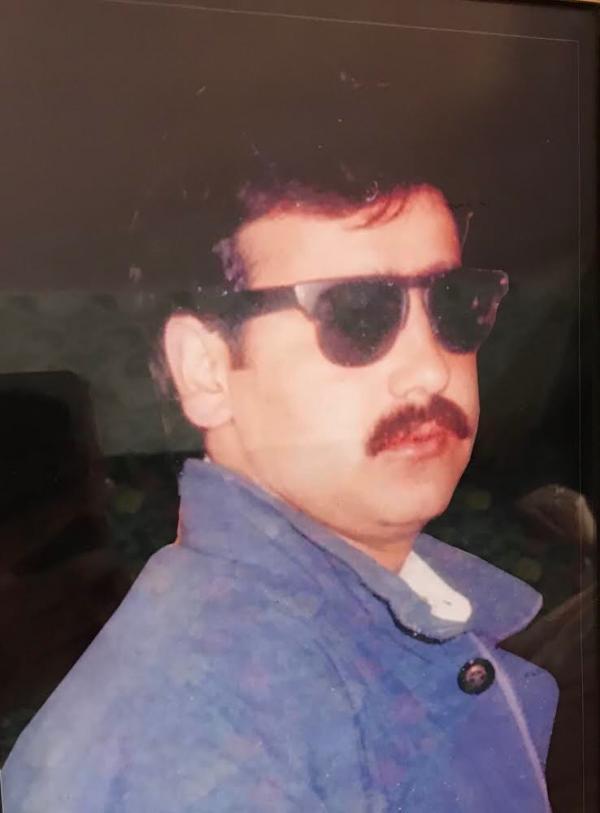
Lateef Before The Detention.
After Waja, another Kashmiri, Mehmood Ali, who was then 24 years old, was detained from the same area.
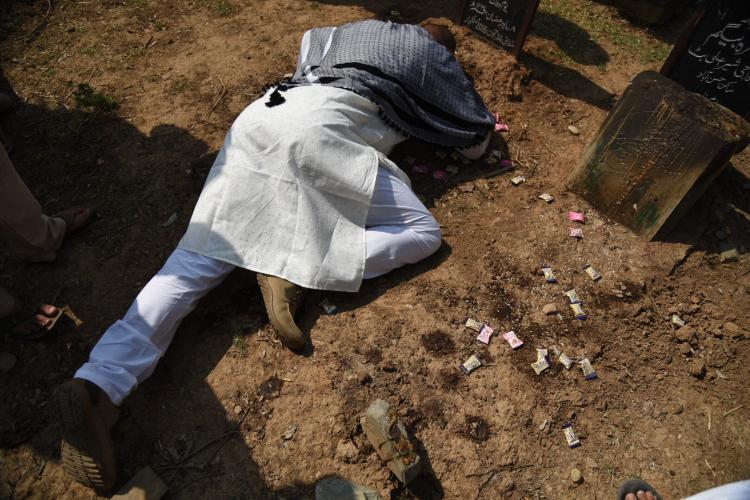
Ali At The Grave Of His Parents. Photo Courtesy: Zubair Sofi
All of them were detained and reportedly were kept in separate vehicles. None of them had any idea about what was going on and where they were being taken. All of them were taken to Delhi across the Sonauli border.
For the first nine days, they were allegedly held in illegal detention. “They kept asking us who was responsible for the blast in Lajpat Nagar. I kept saying I didn’t know. In fact, I had not visited Delhi for about a year at that time. But they kept torturing me,” recalls Ali.
The other two were similarly tortured, they claim. After at least 10-15 days, they were allegedly being kept in illegal detention. When they were produced before the court, Delhi Police sought their remand.
“We were taken to the police station. There, we saw many other Kashmiris including my elder brother. They gave us a bunch of blank papers and made us sign on them forcibly,” recalls Nissar. His elder brother, Mirza Iftikhar Hussain, then a 22-year-old, too was detained in Delhi.
Nissar, Ali and Lateef were taken to Tihar Jail and later to the Jaipur jail in connection with the Samleti bomb blast case of May 22, 1996.
“They knew I was innocent, but they kept beating me. They wouldn’t ask anything, but would still beat me twice a day,” alleges Lateef.
According to the detainees, an officer at the Jaipur jail would tell them that he was aware of their innocence, but they would still be kept until the main culprits are found.
Lateef was later taken into custody by Gujarat police for a bomb blast case and Ali and Nissar was kept in Jaipur initially where they were tortured.
For the next nine months, Lateef remained in Gujarat, while Ali and Nissar were in Jaipur. They were later taken back to Tihar jail where they met other people from J&K.
Years passed, but all of them remained confined behind the bars. On February 16, 2000, Ali received a letter from a friend in which he was informed of the death of his mother, Hajra. He had received the letter four days after her death.
“I broke into tears, but I was helpless. I couldn’t even see my mother one last time. I couldn’t participate in her last rites. Nothing could have been worse for me,” says Ali with tears in his eyes.
Most of the Kashmiri detainees are kept in the high security wards. They allege that whenever there would be clashes with the army in Kashmir, the other criminals and the policemen in the jail would beat up the Kashmiris.
In 2002, the three men met Afzal Guru in the jail, and reportedly became good friends with him. “He would tell us not to lose hope. One day, we will get justice, he assured. But no one knew it would take almost half of our lives,” says Lateef.
“He was very friendly. Even the officers in the jail would respect him. He was very intelligent. So, officers would enjoy communicating with him. He mostly spent his time reading books and offering prayers. Afzal was a good singer too,” he adds.
Their wards kept changing, and they would learn different ways to defend themselves from untoward happenings. “With the passage of time, we started forgetting about the world outside. We would talk to different people to learn how we could keep our hopes alive. We would do workout, read and help each other in bad situations,” says Ali.
Also read: Politics on Kashmir Need Not be About Optics Alone
On 23 February, 2003, it was fourth day of Eid-
ul-Azha. Lateef’s father Ghulam Mohammad Waja was missing Lateef more than usual.
He asked his now 60-year-old wife, Noor Jahan, to bring Lateef’s picture to him. “I brought it to him. He kept it on his chest and closed his eyes. After a few minutes, he suddenly stood up and shouted Lateef’s name thrice and fell on the road,” says Noor Jahan.
He was rushed to the hospital, but doctors declared him ‘brought dead’. Despite several appeals to the court and the jail authorities, Lateef had not been allowed to see his father.
Their life in behind the bars continued. However, in 2008, Lateef was acquitted in the Gujarat blast case. “Before the judge declared me innocent, the investigation officer in the case, Yudh Vanshi, came to me and apologised to me,” recalls Lateef.
Abdul Gani Goni, then a 34-year-old school teacher at Islamia Public school from Bhadarwah area of Jammu region, too had fallen into the same trap.
On May 30, 1996, Goni was arrested from Samta Express train. Goni is a member of Tableeqi Jamaat (a group of practising Muslims who go from place to place to preach Islam).
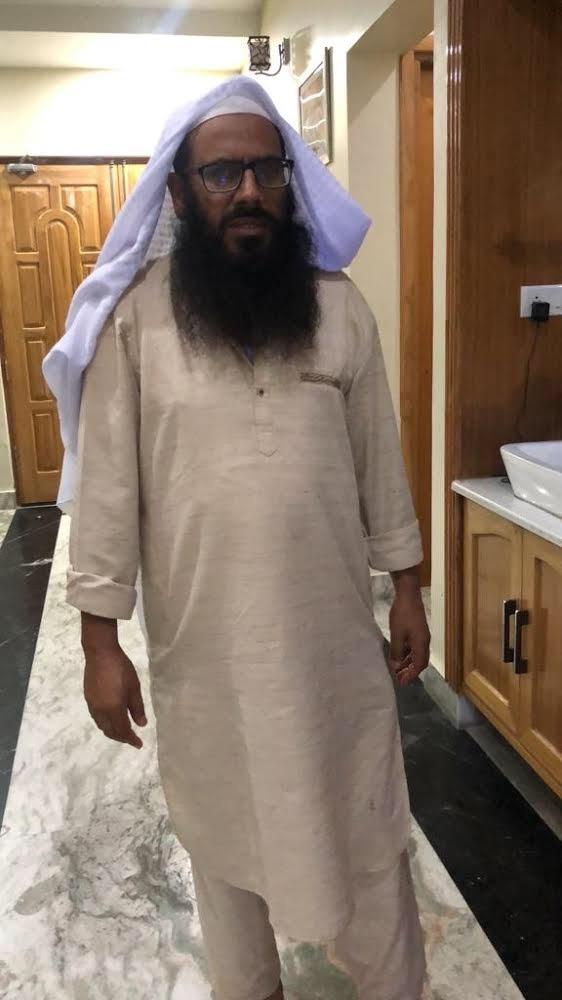
Abdul Gani Goni At His Home In Doda. Picture Courtesy: Zubair Sofi
Like Ali and others, he was too allegedly kept in illegal detention and was accused in all three bomb blasts.
In 2010, Iftikhar, Goni and others were acquitted from the Lajpat Nagar blast case. Meanwhile, Ali, Lateef and Nissar were still waiting for justice. Iftikhar was released. However, Ali and other three were taken to the Jaipur jail.
“Jaipur jail is worse than Tihar. Police would torture us twice a day. At times, other non-Muslim prisoners would beat us for being
Kashmiris,” recalls Nissar.
On June 14, 2016, Ali received some bad news from home. This time, it was about the death of his father, Haji Shear Ali Bhat. “I broke into tears. It was the biggest loss of my life. On top of that, I wasn’t able to participate in his last rites,” recalls Ali. Goni, too, went through the same emotional ordeal when he lost his mother the same year.
“During the last two years in prison, I started writing the Holy Quran in my notebook because I thought I will die inside the jail. I did it to remind myself that no matter how tough our lives are, we should never turn away from our faith or religion,” says Ali. He also claims that during his incarceration, he managed to read several thousand books in Urdu.
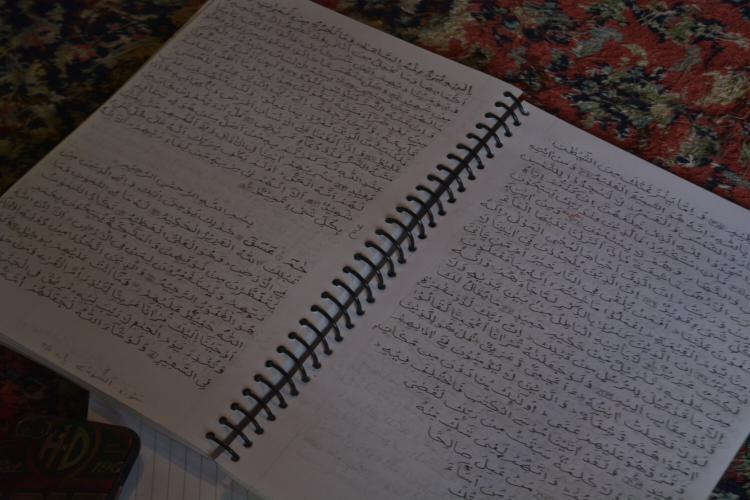
Quran Ali Wrote In The Jail. Photo Courtesy3 Zubair Sofi
Lateef recalls how the situation took a turn for worse in Jaipur jail after the Pulwama attack on February 14, 2019. He alleges that the police deployed in the jail would come and beat them
ruthlessly. “Our whole body would be bruised severely, except for our face and head, as that could land the police in trouble. This continued for a long time,” he says.
Finally, on July 23, this year, Jaiswal informed all four of them that they were being acquitted from all the cases, and that they were free to go.
“Firstly, I didn’t believe the news, but it was true. We were supposed to leave the premises of the jail. We were finally allowed to breathe free, but I didn’t know that it will be hard,” says Ali.
Once out of the premises, the first person they met was a journalist, who wanted to do a report on their story.
“We were free, but our minds weren’t. We were travelling from Jaipur to Delhi. I intentionally sat on the rear seat of the car. I kept looking back again and again to check if we are being followed,” recalls Ali.
Next day, they took a flight to Kashmir where many people were waiting to welcome them.
“Streets, clothes, buildings, environment, everything had changed in Kashmir. Things are completely different and strange for me. From the airport I went straight to our ancestral graveyard where my parents were buried,” he says.
When last time Ali saw the graveyard, it wasn’t as filled as it is now. It took him a lot of time to reach the graves of his parents, as he would stop to look at which other relatives of him had died, and to see their graves.
“Many newspapers and channels mentioned that I collapsed at their grave. But I was trying to hug them by holding on to their grave. I was waiting to be hugged back, which didn’t happen,” says Ali, as tears roll down his cheek.
While talking about the injustices faced by them, Jaiswal says that injustice done by the protectors of justice is something which makes a person lose hope and confidence [in the system]; it simply breaks a person.
“There was not an iota of evidence against all of them. It is because of the prejudiced minds of the people in our system against the people belonging to a particular area and religion. Innocents are forced to spend almost half and the best part of their life in a prison. It is a shame on our system and the judiciary. Judiciary was not ready to listen. I have been labelled as ‘anti-national’ and ‘terrorist’ for taking up such cases,” says Kamini.
Also read: Torture in Kashmir: Rights Groups Release Report, Seek UN Probe
Get the latest reports & analysis with people's perspective on Protests, movements & deep analytical videos, discussions of the current affairs in your Telegram app. Subscribe to NewsClick's Telegram channel & get Real-Time updates on stories, as they get published on our website.









